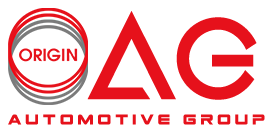3 Ways to Improve Farm Mechanization in Nigeria
Farm mechanization undoubtedly is the path to multiplying the productiveness of farmlands in Nigeria. In a nation with immense potential in farmable lands and thousands of willing farmers, Nigeria is currently producing too little compared to the potential available.
Here are 3 methods to improve farm mechanization in Nigeria:
1. Reaching the Unreached: Farm Extension Workers
Agricultural extension services need to be set up to enlighten farmers who want to apply mechanization for all their farming operations to grow their productivity. Even more, these extension services will be vital to help smallholder farmers who are still clinging on to old ways to see the good in farm mechanization and teach practical ways to embrace it.
It is true Nigeria has some agricultural extension offerings set up through the Federal and state governments, international agricultural corporations and some tertiary institutions. However, their offerings do not cover the introduction and adoption of latest machines for farmers. To improve farm mechanization in Nigeria, agricultural extension workers are the foot soldiers that will make it happen.
2. Local Machine Production
Another way to enhance farm mechanization in Nigeria is to inspire the local production of some of these farm machinery and implements with raw materials sourced regionally. Nigeria is known to be endowed with numerous natural assets containing some of the raw materials that form the parts of these farm machines.
As an example, iron and carbon which combine together to shape metal processed to shape the essential components of all farm machines is present in commercial portions in Kogi state and a few other states.
This means that the local manufacturing of a few farm machines is viable in Nigeria if a conducive environment is created for it to take effect. If farmers can easily buy locally made but yet efficient machines, it will help their farming operations. There might be no need to go for expensive foreign ones which aren’t perfectly suited for their environment, anyway.
3. Farm Mechanization Personnel Training
Farm machines will now not assemble themselves. A human has to design and another character deliver the layout into reality by building what has been drawn on paper. Nigeria needs to train more personnel for the design, production, protection and repairs of farm machines.
Currently there are a few Nigerian institutions involved in training and grooming experts to build and maintain farm machines. These institutions should get support both financially and materially. Again, more people need to be endorsed to move for those trainings.
When farmers see that the farm machinery personnel are well trained, they will gain more self assurance in the farm mechanization process. This multiplied self belief will increase the adoption of farm mechanization in Nigeria.
Add a comment Cancel reply
Categories
- Auto Detailing (1)
- Blog (2)
- Car News (2)
- Car Reviews (1)
- Gallery (5)
- News (22)
Recent Posts
About us




